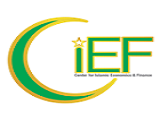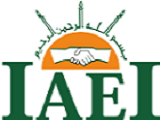Factors Determine Cash Waqf Participation in Kedah, Malaysia: Perception from Students in Kolej University Insaniah
Abstract
ABSTRACT
The advertisement made by the Bank Muamalat Malaysia Berhad (BMMB) was the major cause for a CashWaqf gained popularity in Malaysia partly, the first Islamic banking establishment to manage CashWaqf together with Perbadanan Wakaf Selangor (PWS). The aim of this study is to investigate the determinants of CashWaqf participation from the Malaysian perspective. This study is based on three variables used to determine factors that affect CashWaqf participation in Malaysia. The three variables that are measured in this current study are religiosity, subjective norm, and attitude.used an attitude theory as a baseline theory. The data were collected through the distribution of questionnaires to 100 participants from Students at Kolej Insaniah Universiti. Based on multiple regression analysis and other statistical techniques, the findings of the study showed a significant relationship between religiosity, subjective norm, and attitude with CashWaqf participation. Given the results from the study, it highlights some limitations and suggestions for future studies that may be conducted in this scope.
Keywords: Cash Waqf, Religiosity, Subjective Norm, Attitude
Keywords
Full Text:
PDFReferences
Abdul Khalim, M., & Zakaria, N. H. (2014). Peranan Media Massa Dalam Mempromosikan Saham Wakaf Johor. Pengurusan Jawhar, 8(1), 1–166. http://doi.org/http://dx.doi.org/10.19193/0393-6384_2016_1_31
Achmad, Tohirin (2010), The Cash Waqf for Empowering the Small Businesses. Paper presented at Seventh International Conference- The Tawhidi Epistemology: Zakat and Waqf Economy, Bangi 2010, pp 486- 499
Ajzen, I., & Fishbein, M. (2000). Attitudes and the attitude-behavior relation: Reasoned and automatic processes. European review of social psychology, 11(1), 1-33. https://sci-hub.tw/https://www.tandfonline.com/doi/abs/10.1080/14792779943000116
al Ajfan, A. (1985). Muhammad," al Waqf cala al masjid fi al Maghrib wa al Andalus"[Waqf on mosques in North West Africa and Andaluthia]. Dirasat fi al Iqtisad al Islami, International Center for Research in Islamic Economics, King Abd al Aziz University, Jeddah, 315-342.
Al Harethi, A. R. S. (2019). The Role of The Islamic Economy in Rationalizing Consumer Behavior. JIBER: Journal of Islamic Businnes and Economic Review, 2(1), 13-17.
Amin, H., & Chong, R. K. (2011). Is the theory of reasoned action valid for Ar-Rahnu? An empirical investigation. Australian Journal of Basic and Applied Sciences, 5(10), 716-726.
Anuar, A. S., Bahari, Z., Doktoralina, C. M., Indriawati, F., & Nugroho, L. (2019). The Diversity Of Waqf Implementations for Economic Development in Higher Education. IKONOMIKA, 4(1),13-34. http://ejournal.radenintan.ac.id/index.php/ikonomika/article/view/3808
Bidin, Z., Idris, K. M., & Shamsudin, F. M. (2009). Predicting compliance intention on zakah on employment income in Malaysia: An application of reasoned action theory. Jurnal Pengurusan (UKM Journal of Management), 28. http://ejournal.ukm.my/pengurusan/article/viewFile/895/825
Carabain, C. L. and Bekkers, R. (2011), “Explaining differences in philanthropic behavior between Christians, Muslims, and Hindus in the Netherlands”, Review of Religious Research, Vol. 53 No.4, pp. 419–440. http://dare.ubvu.vu.nl/bitstream/handle/1871/33141/Carabain?sequence=2
Fishbein, M., & Ajzen, I. (1975). Intention and Behavior: An introduction to theory and research.
Ismail Abdel Mohsin, M., & Muneeza, A. (2018). Waqfcoin: an innovation to serve humanity. https://ikr.inceif.org/handle/INCEIF/2956
McDaniel, S. W., & Burnett, J. J. (1990). Consumer religiosity and retail store evaluative criteria. Journal of the Academy of Marketing Science, 18(2), 101-112. https://sci-hub.tw/https://link.springer.com/article/10.1007/BF02726426
Mokhlis, S. (2006). The influence of religion on retail patronage behaviour in Malaysia. https://dspace.stir.ac.uk/bitstream/1893/87/1/Mokhlis_PhD.pdf
Ong, F. S., & Moschis, G. P. (2006, July). Religiosity and consumer behavior: a crosscultural study. In International Conference on Business and Information (Vol. 3, pp. 1-13).
Osman, A. F., Mohammed, M. O., & Amin, H. (2014). An analysis of Cash Waqf participation among young intellectuals.
Shih, Y. Y., & Fang, K. (2004). The use of a decomposed theory of planned behavior to study Internet banking in Taiwan. Internet research, 14(3), 213-223. https://www.emeraldinsight.com/doi/pdfplus/10.1108/10662240410542643
DOI: http://dx.doi.org/10.24042/febi.v4i1.3927
Refbacks
- There are currently no refbacks.
Copyright (c) 2019
Ikonomika : Jurnal Ekonomi dan Bisnis Islam is a Journal of Islamic Economics and Business, Published by the Faculty of Islamic Economics and Business at UIN Raden Intan Lampung Indonesia. This work is licensed under a Creative Commons Attribution-ShareAlike 4.0 International License.






11.png)


